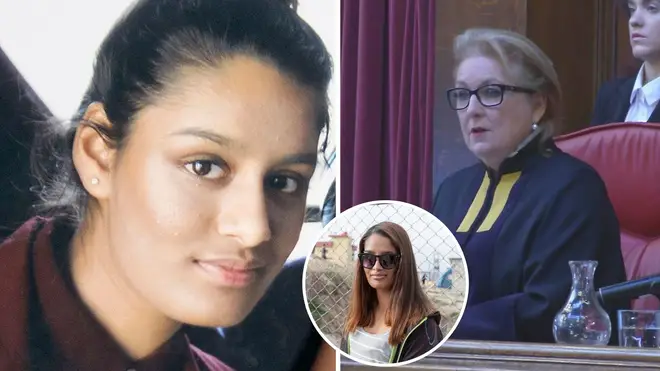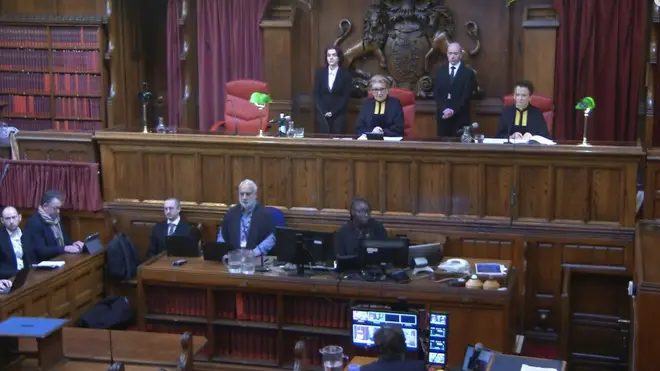
Tonight with Andrew Marr 6pm - 7pm
23 February 2024, 10:23 | Updated: 23 February 2024, 12:09

Isis bride Shamima Begum has been banned from returning to the UK after losing an appeal to get her British citizenship back.
Begum travelled to Syria in 2015 aged 15 and her citizenship was revoked on national security grounds.
It came shortly after she was found in a Syrian refugee camp in February 2019.
Last year, the now 24-year-old lost a challenge against the decision at the Special Immigration Appeals Commission (SIAC).
Her lawyers went on to bring a bid to overturn that decision at the Court of Appeal, with the Home Office opposing the challenge.

Speaking on Friday, Dame Sue Carr, who was one of the appeal judges ruling on the case, said that they agreed with the commission's decision on Begum's citizenship.
"Ms Begum may well have been influenced and manipulated by others but still have made a calculated decision to travel to Syria and align with ISIL," she said.
She added: "It could be argued the decision in Ms Begum's case was harsh. It could also be argued that Ms Begum is the author of her own misfortune.
"But it is not for this court to agree or disagree with either point of view.
"The only task of the court was to assess whether the deprivation decision was unlawful. Since it was not, Ms Begum's appeal is dismissed."
Reacting to the ruling, Begum's lawyer, Daniel Furner, said “we are not going to stop fighting until she does get justice and until she is safely back home”.

During an appeal hearing October, Samantha Knights KC, who represented Begum, told the court that the government had failed to consider the legal duties owed to a potential victim of trafficking or as a result of "state failures" in her case.
But Sir James Eadie KC, for the Home Office, said the "key feature" of Ms Begum's case was national security.
"The fact that someone is radicalised, and may have been manipulated, is not inconsistent with the assessment that they pose a national security risk," he argued.
The SIAC concluded that there were "arguable breaches of duty" by state bodies - including the Met, Tower Hamlets Council and Begum's school - in not preventing her from going to Syria in the first place.
In her 42-page public judgement, Baroness Carr said: "We are not persuaded that there was any obligation on the Secretary of State to take into account the possibility that there might be a duty to investigate the circumstances of Ms Begum's trafficking, alternatively, to consider whether any such investigation as might be required would be enhanced by her presence in this country."
She continued: "In our judgment, SIAC was entitled to find, as the specialist tribunal established by Parliament, that the issue of whether and to what extent Ms Begum's travel to Syria had been voluntary was within the expertise of the intelligence agencies advising the Secretary of State."
Downing Street welcomed the Court of Appeal decision, with a No10 spokeswoman saying: "We're pleased the court has found in favour of the government.
"Beyond that I would just say that our priority remains on maintaining the safety and security of the UK.
"We'll always take the strongest possible action to protect our national security and we never take decisions around deprivation (of citizenship) lightly."